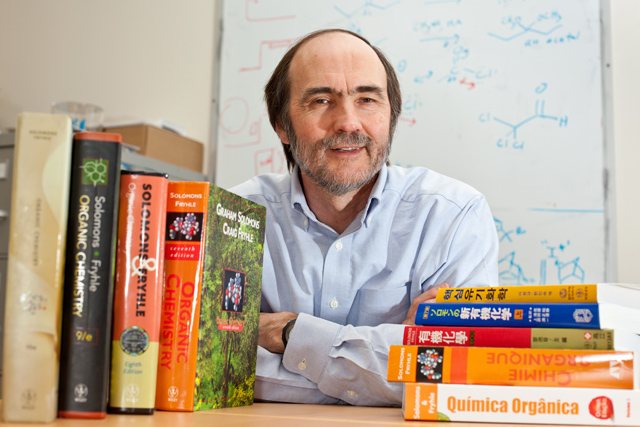Page 14 • (188 results in 0.042 seconds)
-
(University Photographer) Hauge Admin lobby or Red Square 11:15-12:00 | Who are the students you will encounter on the first day of class? Who will help you respond to student needs? Kristin Plaehn (Executive Director of the Center for Student Success) Dr. Eva Frey (Dean of Students) 12:00 | Break before lunch 12:15 | Lunch is served in AUC Regency 1:00 | Inclusive Pedagogy and The Culture of Teaching and Learning at PLU Dr. Jennifer Smith (Dean of Inclusive Excellence; Gender, Sexuality and Race Studies
-
PLUTO and Language Instruction: Pedagogical InnovationsThe PLU Teaching Online Institute (PLUTO) provides pedagogy and technology training for faculty to learn and to innovate together as a cohort working to design online courses. Over this last year, several faculty from the Department of Languages and Literatures participated in the program. In Summer 2014, Dr. Bridget Yaden (Hispanic Studies) participated in the cohort for developing hybrid courses and, in January-term (J-Term) 2015, Dr
-
Music. Our students experience a thorough curriculum, taught by a highly qualified and cohesive full-time and adjunct faculty. Highlights of the choral music education degree include courses in elementary music methods and materials, secondary choral methods, secondary choral literature, vocal pedagogy, and four semesters of conducting. This is one of the most extensive undergraduate choral music education degrees available. PLU graduates are consistently placed in outstanding elementary and
-
members at various stages of their academic careers. The panelists will address diversity as it relates to the educational and scholarly role at their respective institutions, including curricular content, scholarly methodology, and the research mission. The panelists will provide an overview of the impact of diversity initiatives on student competencies and knowledge; and why diversity should inform the scholarship and pedagogy of every academic discipline. Webinar hosted by the Council on
-
a Best Book of 2019, while the New York Times Book Review selected it as an Editors’ Choice Book. Family Papers was also named a National Jewish Book Prize Finalist (2019). Stein’s books, articles, and pedagogy have won numerous prizes, including two National Jewish Book Awards, the Sami Rohr Prize for Jewish Literature, a Guggenheim Fellowship, and the UCLA Distinguished Teaching Award. Stein is also co-editor (with David Biale of UCD) of Stanford University Press Series in Jewish History and
-
Beyond pedagogy: from Tacoma to Namibia, a partnership reframing teacher development practices In Kwangali and Oshindonga, widely spoken languages in Namibia, “Uukumwe” means “togetherness.” For six teachers in Washington and seven teachers from Namibia, the word personifies the relationship-building that lies at the heart of education. “It was a vision that was bubbling in my mind because… September 28, 2023 Alumni, Internships, Career
-
Rick Barot making a presentation during the Rainier Writers Workshop at PLU, which he directs. In the teaching that I do, particularly in creative writing classes, the notion of the two desks is a central element of my pedagogy. For many, the idea of a poetry-writing class probably draws on a caricature of people having a therapy session in a vaguely bohemian atmosphere, complete with candles and patchouli. This is an image of creativity as self-indulgence, dependent on the idea that poetry —not to
-
FAQs1. What is the CS-STEM Program?Answer: The CS-STEM Teacher Program at Pacific Lutheran University is an opportunity for students to develop as highly effective K-12 STEM teachers prepared to teach using culturally sustaining pedagogy. Funded by a Robert Noyce Teacher Scholarship Program grant from the National Science Foundation (Award Number 1950106), the CS-STEM Teacher Program will provide selected students with forgivable loans as well as programmatic support during training and in the
-
authority. Consequently, they argued that scholars should be absolutely free to pursue methods and pedagogy appropriate to their disciplines. In early Lutheran universities, the granting of tenure was nothing less than the solemn promise of a church-sponsored university to protect faculty from censorship – from donors, politicians, businesspersons, or church leaders who might be unsettled by or opposed to faculty research and teaching. In contrast to others forms of education (and religion), Lutheran
-

borne. Fryhle’s name began appearing as a co-author on the book in its 7th edition, published in 2000. Each edition involves painstaking review by both Fryhle and Solomons,who make changes to address the evolution of both knowledge in organic chemistry and current modes of pedagogy. Professors around the country provide detailed critical reviews of the text that help shape the revisions made by Fryhle and Solomons. Updating the text, study guide, and online material, where the slightest inaccuracy
Do you have any feedback for us? If so, feel free to use our Feedback Form.


